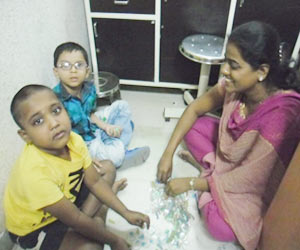Support for persons with autism can cost about a million or more.

Author: Ariane V.S. Buescher, M.Sc., of the London School of Economics and Political Science, and colleagues.
Background: ASD is a neurodevelopmental disorder marked by impaired social ability, especially communication, and repetitive patterns of behavior, interests or activities. The disorders can be associated with significant functional impairment and result in high financial costs for families. The economic effect of ASDs on individuals with the disorder, their families, and society as a whole is poorly understood and has not been updated in light of recent findings.
How the Study Was Conducted: The authors conducted a literature review of U.S. and U.K. studies on patients with ASD and their families in 2013 to examine costs and economic impact.
Results: The lifetime cost of supporting a patient with ASD and intellectual disability was $2.4 million in the U.S. and the equivalent of $2.2 million in the U.K. The lifetime cost to support a patient with an ASD but without an intellectual disability was $1.4 million in the United States and the equivalent amount in the U.K. The largest segments of cost for children were special education services and the loss of parental productivity. During adulthood, the highest costs were related to residential care or supportive living and individual productivity loss.
Conclusion: "This study presents the most comprehensive estimates to date of the financial costs of ASDs in the United States and the United Kingdom. These costs are much higher than previously suggested. … There is also an urgent need for a better understanding of the effectiveness and cost-effectiveness of interventions and support arrangements that address the needs and respond to the preferences of individuals with ASDs and their families. Because the economic effects of ASDs in individuals with or without intellectual disability are considerable throughout life, so too should the search for more efficient and equitable use of resources span all age groups." (JAMA Pediatr. Published online June 9, 2014. doi:10.1001/jamapediatrics.2014.210. Available pre-embargo to the media at media.jamanetwork.com.)
Editorial: Moving Toward Innovation, Investment Mindset
"Therefore, getting an autism spectrum disorder diagnosis is not just a medical experience or a service encounter. For the person with autism, diagnosis is a doorway into a social role as a potential lifelong service user. For families, an autism diagnosis can also mean a lifetime of absorbing many of the financial and care-giving burdens associated with the disorder, especially in adulthood when the availability of societal support diminishes."
"Improving our understanding of how life unfolds will require a serious commitment to longitudinal, population-based data collection. For nearly seven decades, evidence from the Framingham Heart Study and other longitudinal studies has laid the foundation for our contemporary understanding of the epidemiology and treatment of cardiovascular disease. We need a Framingham Study for autism spectrum disorders, especially to track risks and outcomes into middle and later adulthood," they conclude. (JAMA Pediatr. Published online June 9, 2014. doi:10.1001/jamapediatrics.2014.585. Available pre-embargo to the media at media.jamanetwork.com.)
Editor's Note: Please see article for additional information, including other authors, author contributions and affiliations, etc.
Source-Eurekalert
 MEDINDIA
MEDINDIA




 Email
Email





